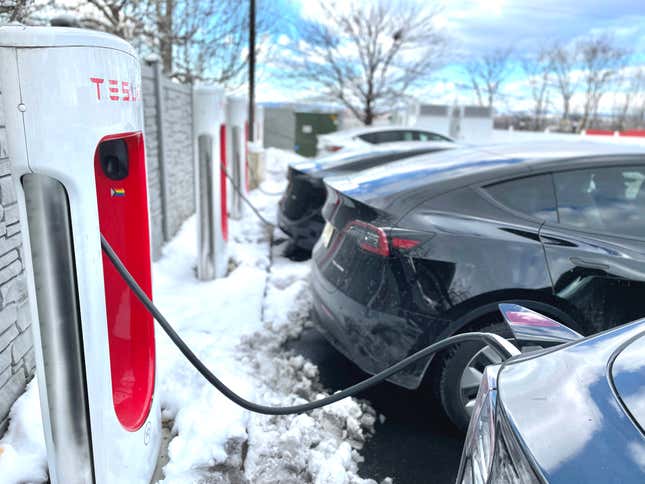
Electric vehicles have been heralded as an environmentally friendly alternative to gas-guzzling vehicles, but they may not be suitable for everyone.
The lithium-ion batteries that power EVs struggle in cold weather and can often see a significant reduction in their range.
This proved disastrous in January during a Chicago cold snap, when Tesla (TSLA) drivers were lining up for hours to charge their cars.
“I’ve been here for over five hours at this point, and I still have not gotten to charge my car,” Tesla driver Brandon Welbourne told CBS News (PARA) at the time. “A charge that should take 45 minutes is taking two hours.” Welbourne said as he waited to charge his car, he saw a tow truck take away at least ten cars whose batteries died during the cold snap.
The Vaziri Law Group did a study to see which EVs are most unreliable in the cold, looking at the different electric car’s battery range reduction, average accidents during winter over three years, average charging time, and battery capacity.
It suggested EV drivers adopt “a few strategic adjustments to maintain performance and safety in cold conditions”
“Since low temperatures can reduce battery range by 10% to 20% or more, pre-conditioning the cabin and battery while plugged in helps limit energy loss and preserves range,” the Vaziri Law Group said. “Planning extra time for charging can also be helpful, as charging speeds tend to slow in winter. Investing in winter tires improves handling, particularly given the added weight of EVs, which can make slides harder to control on icy roads.”
Check out which seven EVs struggle the most in the winter, according to the study.










